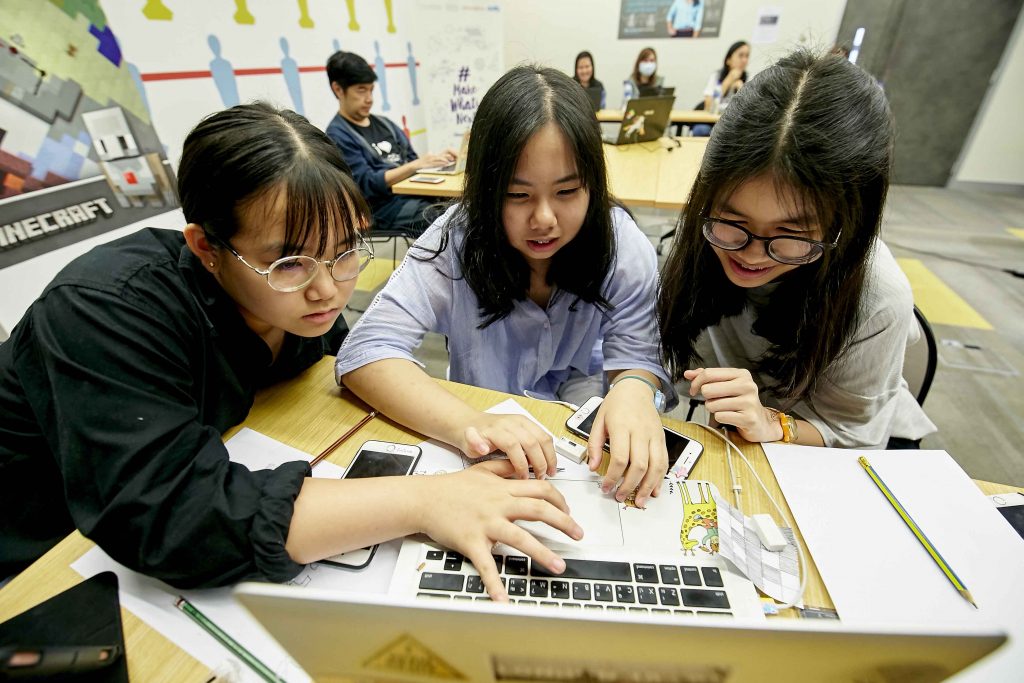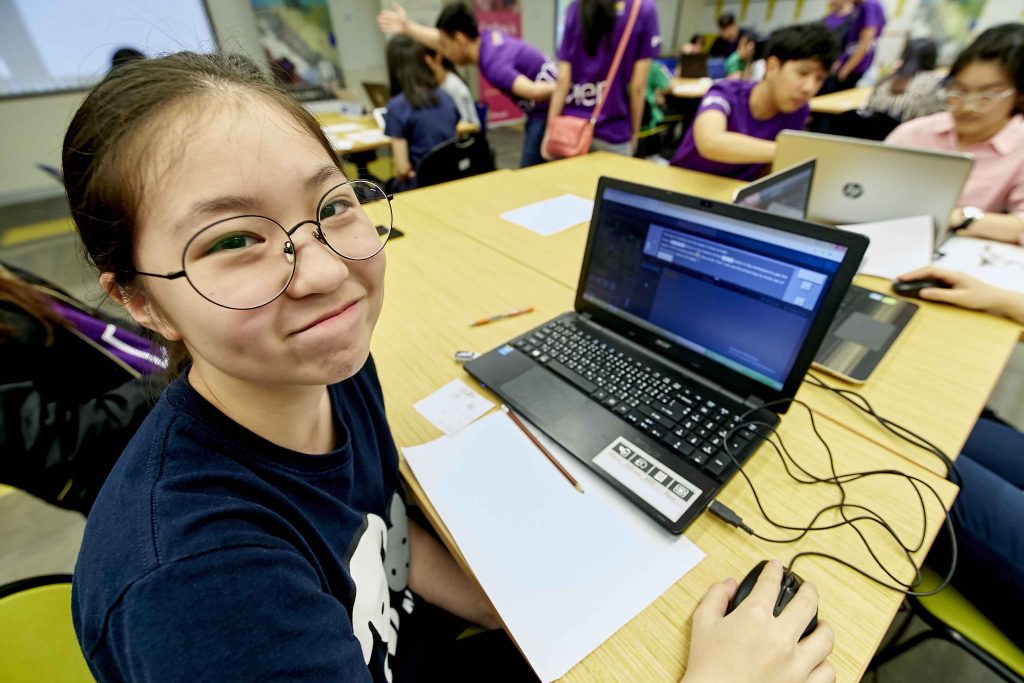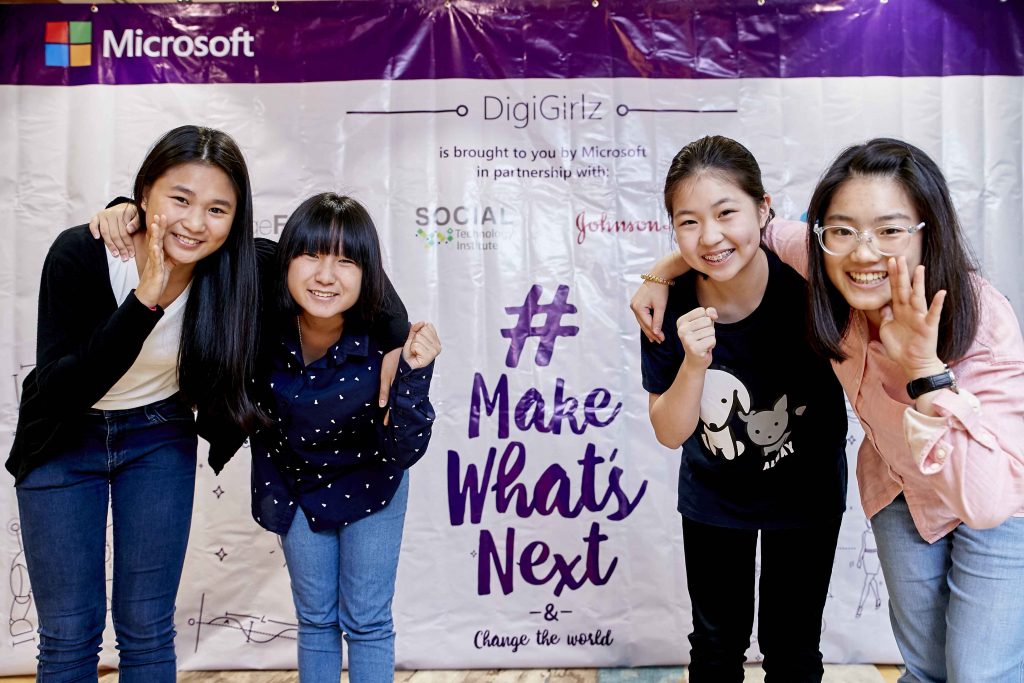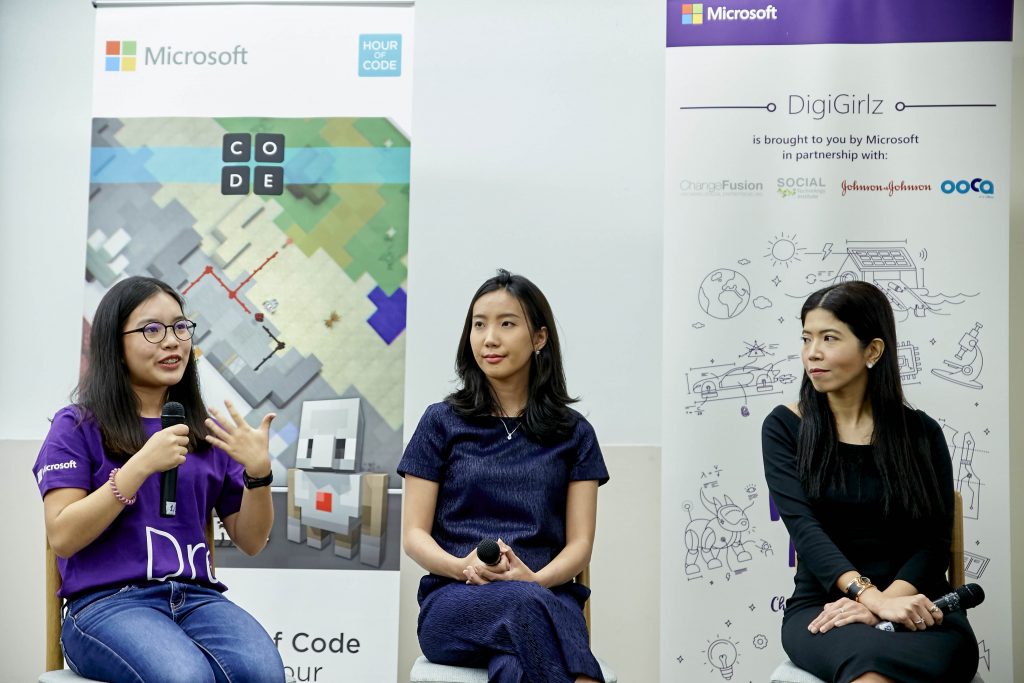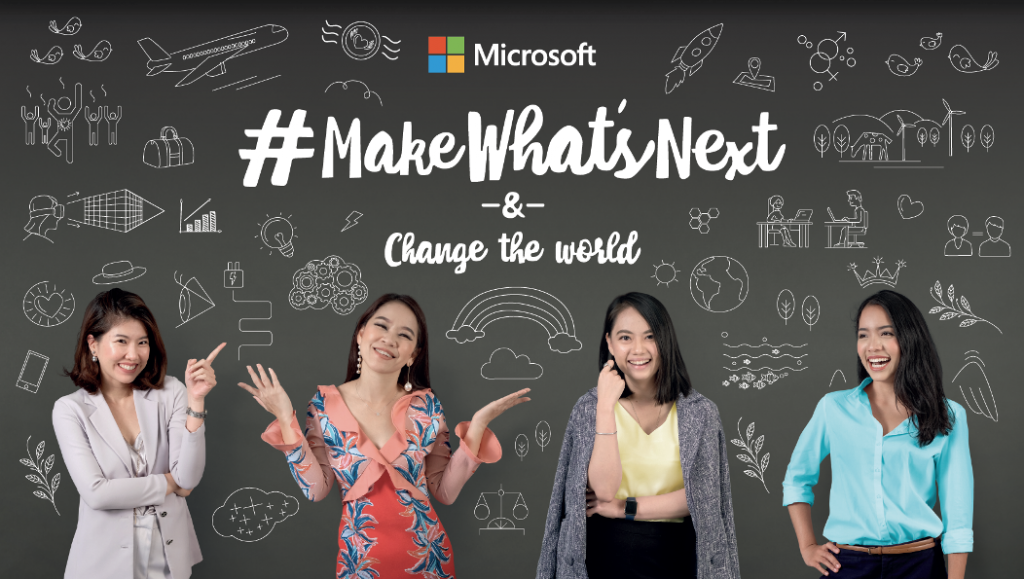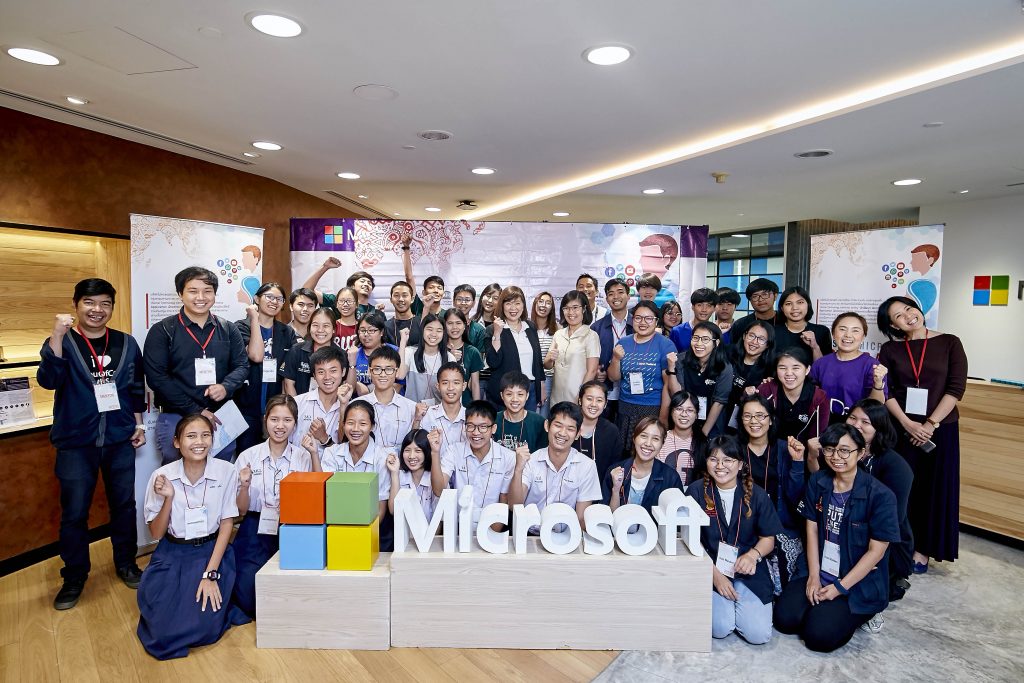Young women across Thailand and Asia are taking their first steps to change the world by getting inspired to pursue careers in Science, Technology, Engineering and Math (STEM), in partnership with Microsoft
Bangkok, April 9, 2018 — As part of its mission to ensure accessibility and availability of technology and skills for every single person in Thailand, Microsoft Thailand together with public and private partners, kicked off a series of events and programs to launch the #MakeWhatsNext campaign, Microsoft’s global initiative aimed to encourage young women to pursue careers in Science, Technology, Engineering and Math (STEM).
“It’s estimated that in the next three years, 95% of jobs in Thailand will be transformed, and 65% of next generation jobs still don’t exist today. Skills and education will be key to tapping into the job market for the next generation, and digital skills will become essential to the future workforce. That’s why Microsoft has made its mission to ensure that every young student has access to the skills and knowledge they need to succeed in the digital world,” said Mr. Dhanawat Suthumpun, Managing Director, Microsoft Thailand.
Engaging Young Thai Women and Girls to #MakeWhatsNext
Today, the number of women pursuing STEM education and careers is still low despite technology making tremendous progress over the last few decades. UNESCO’s Institute for Statistics (UIS) estimates that only 23% of researchers in East Asia and the Pacific are women and only 35% of all students enrolled in STEM-related fields of study are female.
In March, Microsoft hosted two external events that saw a total of 104 participants gather to celebrate the power of girls in STEM. One of them was DigiGirlz 2018, a half-day programme with two inspiring sessions aimed to advise middle and high school girls about benefits of education in STEM, and encourage them to participate in STEM related hands-on workshops. The signature event saw girls aged 13 to 17 come together to listen to advice from industry leaders, mingle, exchange experiences and learn.
“Even though the gender differences in STEM achievements have seen a decrease in recent years in Thailand, the stereotype that only men can succeed in the tech and engineering industries still exists. For young students just having access to ICT and STEM education isn’t enough. This is especially true for girls who tend to either be intimidating by STEM subjects, or find them boring. Getting more girls into STEM requires a holistic, integrated and forward-looking response including providing girls with good learning tools, appropriate support, and mentorship that sparks interest and creativity. Microsoft is proud to be at the forefront of the movement aimed to encourage girls to acquire ‘can-do’ attitude and ‘growth’ mindset, and today’s event is one of many initiatives that will help Thailand eliminate the gender gap,” concluded Mr. Dhanawat.
Dr. Nattapol Nimmandpatcharin, President of Digital Economy Promotion Agency, said “We share Microsoft’s opinion that success of Thailand’s future workforce lies with STEM, and applaud their commitment to take on this responsibility to encourage and support young women to follow this path. By choosing a career in STEM, young women and men will reach their true potential and help make positive change to our country and the world.”
Another reason for gender imbalance in STEM subjects is the lack of role models for young women to be inspired by, and grow confidence in the ability to pursue careers in those sectors. In fact, only 1 in 4 girls aged between 12 to 19 years of age in the region4 know a female public figure in the field of STEM.
After the opening speech, the girls had a chance to heard from some of Thailand’s female industry leaders and role models including Ms. Pimphaka Ungsvanonda, Senior IT Manager, Head of PLO ONE SEA, Johnson & Johnson, Ms. Kanpassorn Suriyasangpetch, Founder of Ooca, and Ms. Vipawan Jarukitpipat, Business Lead for Microsoft Student Partners, who shared their experiences on how their decision to learn Computer Science helped them pursue their dream careers and make positive impact on society.
Ms. Chanunchida Khaepen, a student participant of #MakeWhatsNext – DigiGirlz, said, “I’ve never been interested in coding before, but participating in #MakeWhatsNext – DigiGirlz changed that. It was so inspiring and now I have the courage to learn and try without fear of failing. I thought coding would be very difficult, but this initiative makes it so much easier to understand that now, I’m actually considering to study coding in the future.”
Shining the Light on Our Female Talents
Microsoft also believes that to fulfil our company’s mission and truly empower every person and every organization on the planet to achieve more, we, ourselves, need to do more. That’s why this year, Microsoft Thailand decided to highlight our brilliant women talents who are passionate about their work and inspire every one of us to achieve more. On March 9, we turned one of our meeting spaces into a photo studio inviting everyone to be that trailblazer, role model, hero, and role model who can inspire the future generation of Thai women.
UNESCO-Microsoft Hackathon for ASEAN Culture of Peace
Additionally, Microsoft Thailand has partnered with UNESCO Bangkok and The Social Technology Institute, to hold Hackathon for ASEAN Culture of Peace. The Hackathon was open to mixed teams of female (70%) and male (30%) web/mobile application developers, who want to make a difference through technology, peace, and cross-cultural dialogue. Participants were invited to create a web or mobile app that promotes the culture of peace and harmony, and has a tangible effect on society.
On March 31, five finalist teams emerged victorious from stiff competition and each received THB20,000 to develop full working versions of their proposed apps to be presented at the Finalist Showcase on May 21. The winner of the Hackathon will receive a trophy from HRH Princess Maha Chakri Sirindhorn, an opportunity to showcase their work at UNESCO Symposium on South-East Asian Shared Histories for Intercultural Dialogue and Culture of Peace in October 2018.


